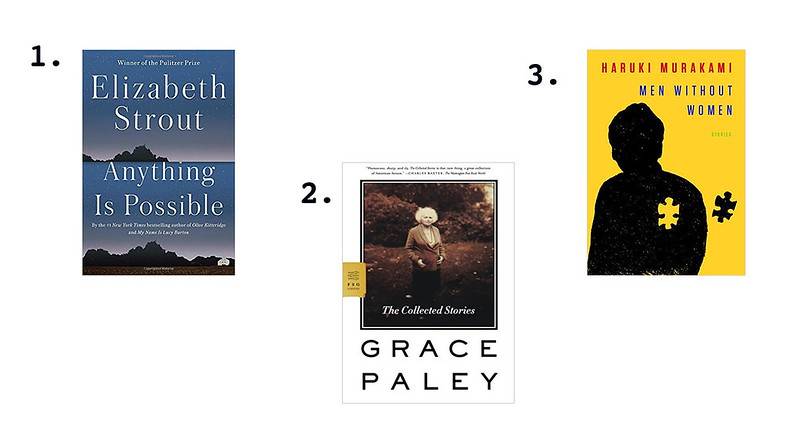
1. ANYTHING IS POSSIBLE
Elizabeth Strout's novel - My Name is Lucy Barton - was one of the best books I read this year. So when I learned that Strout wrote a follow-up short story collection centered on the small, Illinois town where Lucy grew up, I couldn't wait to read it. And the stories are wonderful. You learn about Lucy and the childhood poverty she endured, as well as more about several of the minor characters in the first novel.
Some critics have called the characters sad and lonely, but I found the collection hopeful - full of moments of surprise and beauty.
One of my favorite passages - "As Dottie thought about this, going back and forth between the kitchen and the dining room, she saw Shelly Small as a woman who suffered only from the most common complaint of all: Life simply had not been what she thought it would be. Shelly had taken life's disappointments and turned them into a house. A house the, with the clever use of the right architects, had managed to stay within the legal code yet became a monstrosity as large as Shelly's needs . . . but it had not been enough. What Dottie had not said to her, because it was not her place, was that Shelly had a husband who would break into song at the breakfast table with her in a room full of strangers sitting nearby, and that was no- excuse me, Dottie though - small thing."
2. GRACE PALEY - THE COLLECTED STORIES
I first read Grace Paley a few months ago and since then I've become obsessed. How have I never heard of her before? She's like a surreal, feminist, John Cheever. Despite the fact that Paley wrote these stories in the 1960s and 1970 many of the characters are still relatable today.
One of my favorite passages -
"He said, Tell me again. He was in a good mood. He said, You can even tell it to me twice.
I repeated the story. They all said. What?
Because it isn't usually so simple. Have you known it to happen much nowadays? A woman inside the steamy energy of middle age runs and runs. She finds the houses and streets where her childhood happened. She learns as though she was still a child what in the world is coming next."
3. MEN WITHOUT WOMEN
One of my favorite authors ever is Haruki Murakami, though in general I like his short stories more than his novels (but Norwegian Wood and Sputnik Sweetheart are so so good too). And this is the first collection he's released in the last ten years.
As described in this New Republic article, "Like Murakami’s novels, the best of these stories are beautifully, delicately unsatisfying. They shy away from resolution, leaving the reader suspended in midair. . . . The unknowability of Murakami’s characters is most effective when it hints at the mysteries of our world, when it reminds us that everyone we meet contains so many depths and contradictions that we can never fully know them."
. . . .
"Do we really need another book about men without women? I’d say that the answer is no. Even leaving Hemingway aside, at least half the literary canon is about men without women already. But stories about loneliness, about estrangement, about lack: There our appetite is endless, and Murakami offers up a new and striking way to feed it. Where Men Without Women tries to make a statement about, specifically, men and women, it fails: too self-conscious, too glib. But for people intrigued by the many facets of loss, the rest of the collection offers classic Murakami—refreshing, unusual, lustrous, with a vacancy at its heart."
No comments:
Post a Comment